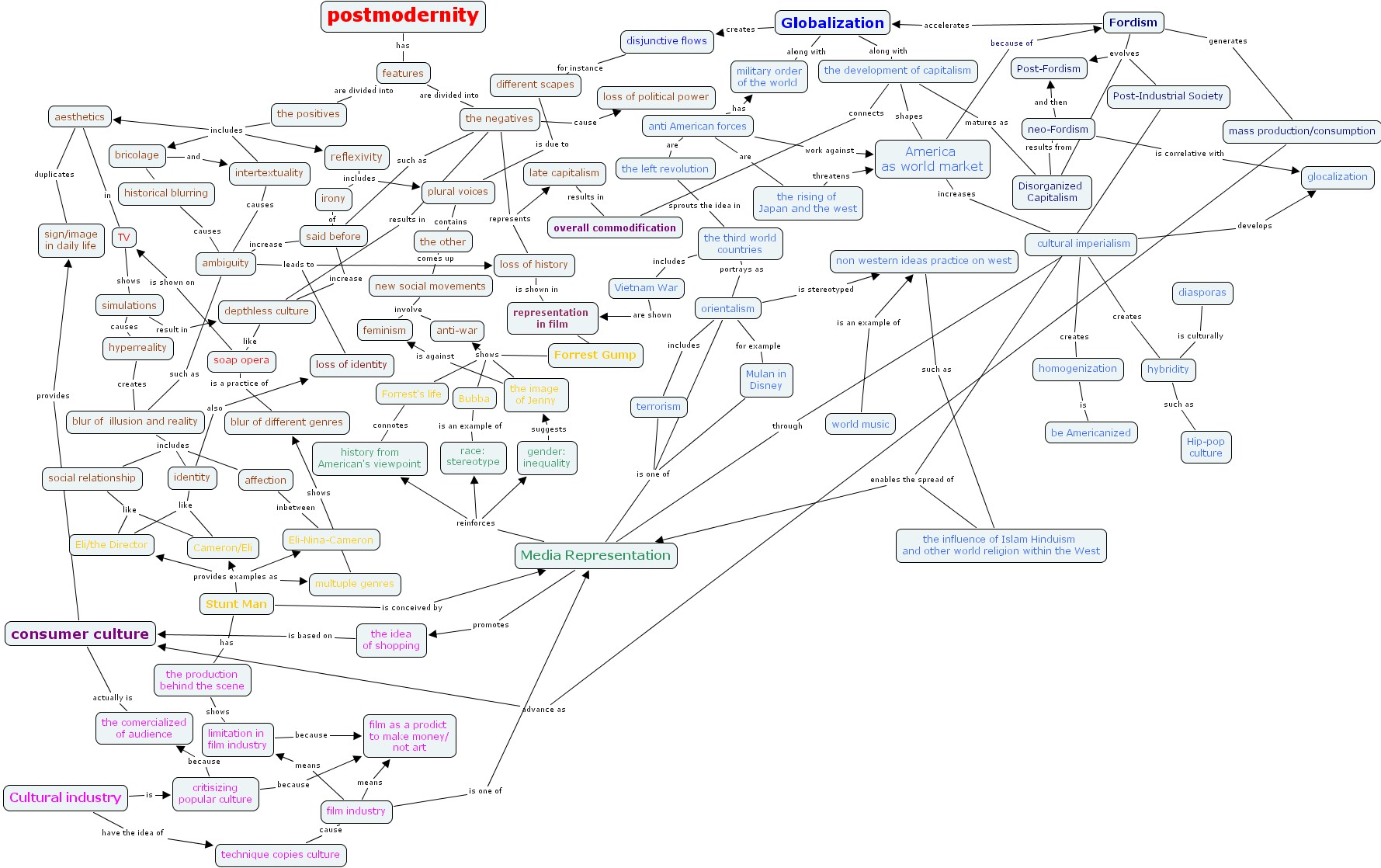Postmodernism and globalization are two complex and multifaceted phenomena that have significantly impacted contemporary culture, society, and politics. Both have been the subject of much discussion and debate, and have generated a wide range of responses and interpretations.
Postmodernism is a philosophical and cultural movement that emerged in the latter half of the 20th century, and is characterized by a skepticism towards grand narratives, universal truth claims, and the perceived certainty of modernity. It is associated with a deconstruction of traditional ways of thinking and the rejection of the idea that there is a single, objective reality. Instead, postmodernists argue that reality is constructed by language, power dynamics, and cultural narratives, and that there is no inherent meaning or value in the world.
Globalization, on the other hand, refers to the increasing interconnectedness and interdependence of the world's economies, cultures, and populations. It is driven by advances in transportation, communication, and technology, which have facilitated the movement of goods, people, and ideas across national borders. Globalization has had a profound impact on the way we live, work, and communicate, and has led to the emergence of a globalized culture that is influenced by a range of factors, including economic, political, and technological forces.
One of the ways in which postmodernism and globalization intersect is through the proliferation of media and communication technologies, which have facilitated the spread of diverse cultural influences and the erosion of traditional boundaries. The internet, for example, has made it possible for people to access a wide range of information and perspectives from around the world, and has allowed for the emergence of virtual communities and networks that transcend physical borders. At the same time, the media has played a significant role in shaping public discourse and influencing the way we perceive and understand the world.
Another way in which postmodernism and globalization intersect is through the concept of identity. In a globalized world, individuals are often confronted with multiple, overlapping identities that are shaped by their nationality, ethnicity, religion, gender, and other factors. This can lead to a sense of disorientation and a lack of belonging, as people struggle to reconcile their different identities and find their place in the world. Postmodernism, with its skepticism towards traditional identities and its emphasis on individuality and self-creation, can be seen as a response to this sense of fragmentation and rootlessness.
There are, however, a range of criticisms and debates surrounding both postmodernism and globalization. Some argue that postmodernism has led to a relativistic and nihilistic worldview that undermines traditional values and the pursuit of truth. Others argue that globalization has contributed to economic inequality and the erosion of cultural diversity, as well as environmental degradation.
In conclusion, postmodernism and globalization are complex and multifaceted phenomena that have had a significant impact on contemporary culture, society, and politics. While they have generated a range of responses and interpretations, they have also been the subject of much debate and critique. Ultimately, the relationship between postmodernism and globalization is complex and multifaceted, and requires ongoing examination and reflection.







